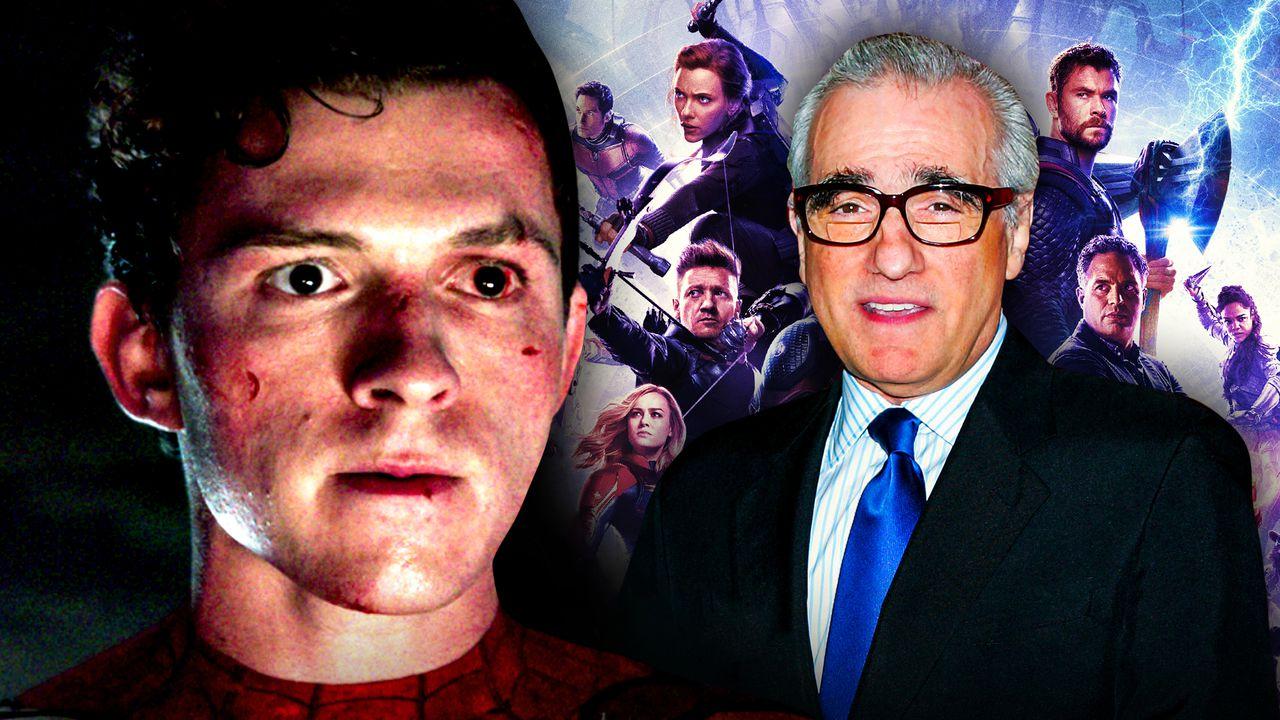
Even though Spider-Man: No Way Home starring Tom Holland and Benedict Cumberbatch has only been in theaters for a short amount of time, the juggernaut superhero film has already shattered box office records while producing rave reviews from fans and critics alike. In fact, No Way Home was recently named Rotten Tomatoes' highest-rated movie in terms of audience rating.
While audiences will hear about this film from everyone and everywhere, the one place they probably won't is in the upcoming awards conversation. This is because comic book films are often the victim of, as Marvel Studios president Kevin Feige once said, "genre bias."
Apart from 2018's Black Panther receiving a Best Picture nomination at the Academy Awards, the Hollywood elite has largely regarded Marvel's library of box office success as inferior with directors like The Irishman's Martin Scorcese claiming they're "not cinema" and Dune's Denis Villeneuve stating referring to them as "cut and paste."
As the Christmas season draws to a close and the awards season begins, those involved with Spider-Man: No Way Home are now weighing in on Hollywood's distaste for comic book movies and why the genre isn't so different as the elite might think.
Spider-Man's Tom Holland Addresses the Oscar's "Genre Bias"

In talking with The Hollywood Reporter, Spider-Man's Tom Holland weighed in on the conversation asserting that comic book films and Oscar contenders are "all the same, just done on a different scale," and that he thinks Marvel movies are "real art."
Holland wasn't just making this claim from a position of bias but also from experience. Before assuming his role as Sony and Marvel's web-slinger, the actor starred in the Oscar-nominated 2012 film The Impossible.
According to Holland, Martin Scorcese in particular "doesn't know what it's like" making a Marvel movie because he's never been involved with one:"
“You can ask [Martin] Scorcese ‘Would you want to make a Marvel movie?’ But he doesn’t know what it’s like because he’s never made one. I’ve made Marvel movies and I’ve also made movies that have been in the conversation in the world of the Oscars, and the only difference, really, is one is much more expensive than the other."
The actor also explained that genre or the MCU label doesn't affect how he approaches a character; although, when it comes to an indie film, "it comes with different levels of pressure:"
"But the way I break down the character, the way the director etches out the arc of the story and characters — it’s all the same, just done on a different scale. So I do think they’re real art. When you’re making these films, you know that good or bad, millions of people will see them, whereas when you’re making a small indie film, if it’s not very good no one will watch it, so it comes with different levels of pressure."
Holland also referenced his Marvel co-stars, including Iron Man's Robert Downey Jr., who have also been part of Oscar contenders, saying that "they will tell you that they're the same:"
"I mean, you can also ask Benedict Cumberbatch or Robert Downey Jr. or Scarlet Johansson — people who have made the kinds of movies that are ‘Oscar-worthy’ and also made superhero movies — and they will tell you that they’re the same, just on a different scale. And there’s less Spandex in ‘Oscar movies.’”
What Defines an Oscar Movie?
Since Spider-Man: No Way Home outscored many of this year's "Oscar-worthy films," this discussion is more relevant than ever, especially since Holland would likely be part of the Best Actor pool if No Way Home belonged to any other genre.
Perhaps the core of the issue is what truly defines an Oscar-worthy film. Is it craftsmanship and artistry? Quality? Direction and talent?
While not every Marvel film has succeeded in these fields, a considerable number have with the most obvious from the recent past being Avengers: Infinity War and Avengers: Endgame.
While the parameters of that definition may still be a gray area, the box office is crystal clear; and it's an established fact these days that theater-going audiences prefer to see a Marvel film more than an Oscar contender.
Why? Well, despite what Scorcese and other directors may say, it's not because audiences lack intelligence or are lazy. After all, the MCU has maintained its audience's attention for more than ten years with twenty-plus ongoing interconnected stories and characters. To fully invest in a Marvel movie requires a viewer to be anything but lazy and to do even do "homework."
Now, if the argument against Marvel's awards worthiness has to do with emotion and the human experience, that argument fails as well.
Anyone who has seen footage of audiences reacting to Avengers: Infinity War or Endgame and now No Way Home knows that those films deal with tremendous loss and the best and worst of humanity. The Marvel difference is that - despite mistakes, loss, and heartbreak - an MCU film will find a way to leave its audience hopeful and inspired.
The ending of Spider-Man: No Way Home is arguably tragic. But yet, this ending was hopeful and an example of heroism.
This is why people watch movies. They don't want to see more of the real world; they want to be inspired. And isn't message and inspiration what art should be?
Like Holland said, crafting a film that tells this kind of story is "all the same" as an Oscar-worthy picture; and that the fact he, along with Benedict Cumberbatch and Scarlet Johansson, approach their Marvel roles as they would in a Scorcese or Villeneuve film show that they understand this. Hopefully, their industry will come to recognize this as well.
Spider-Man: No Way Home is now playing in theaters worldwide.












